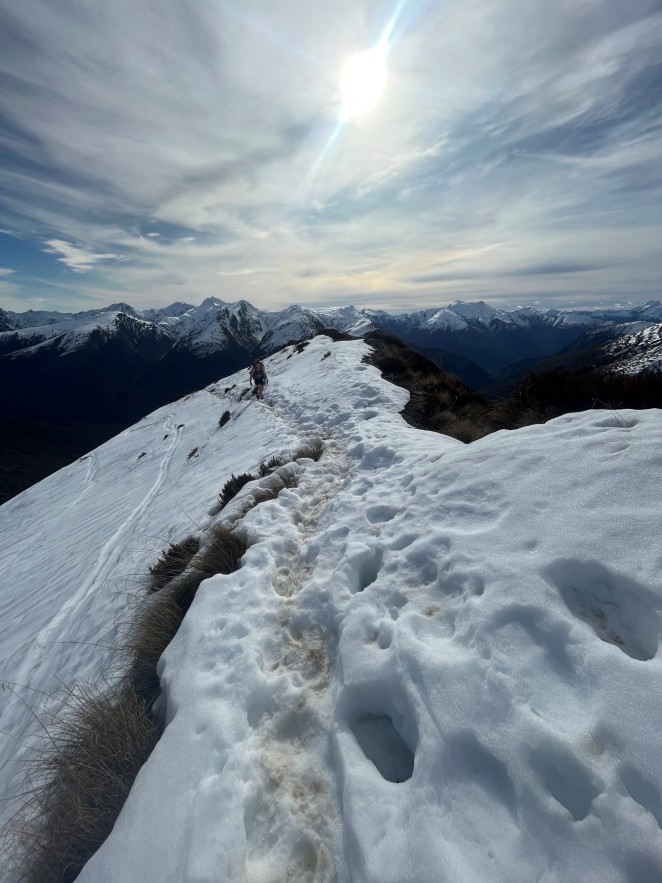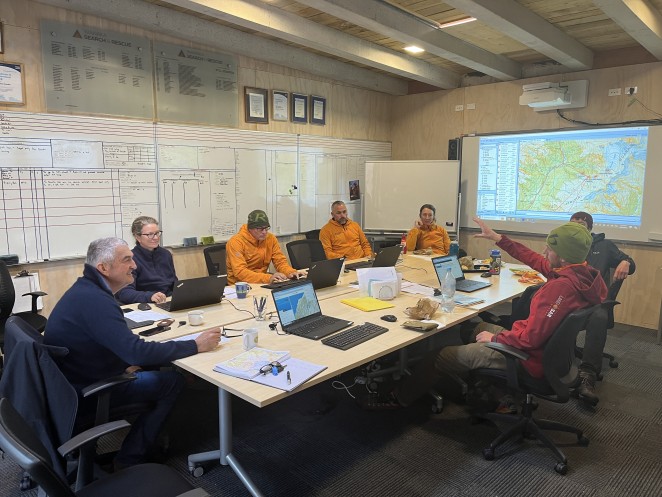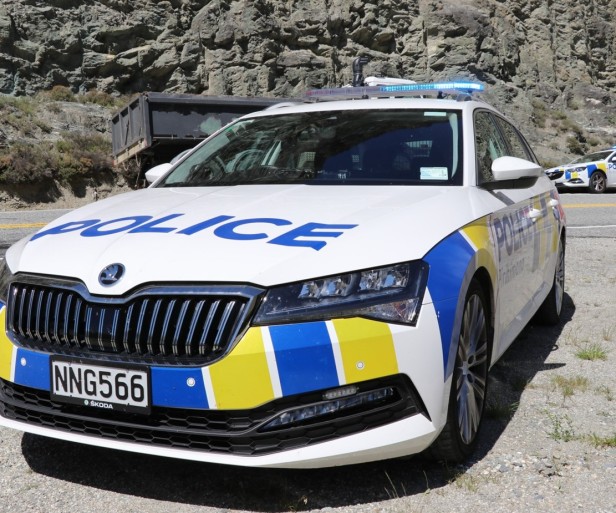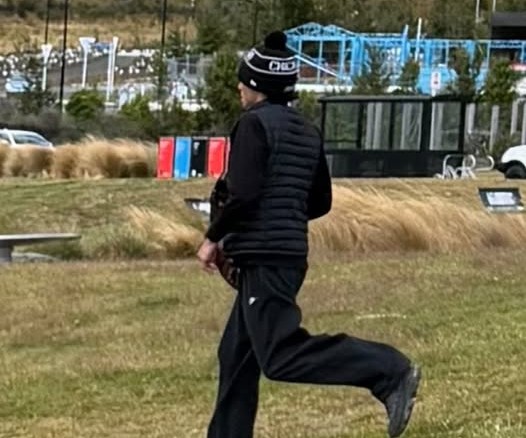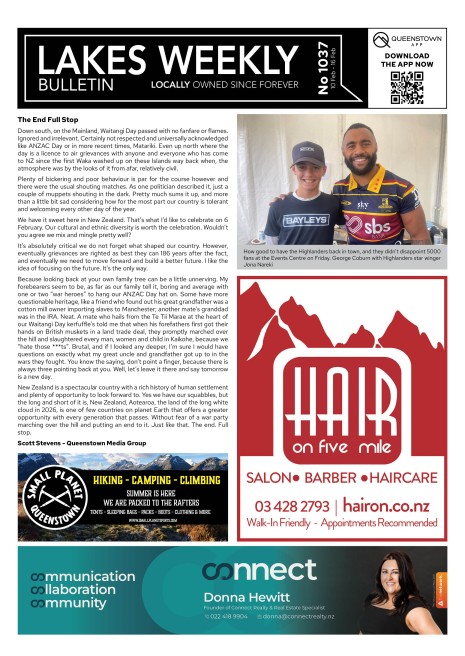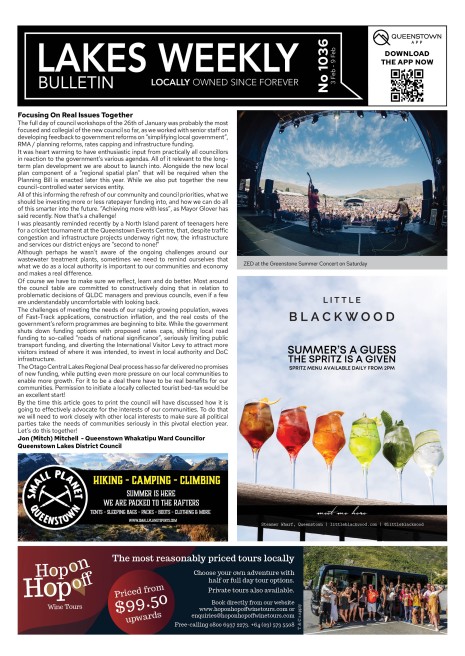Concerns over unprecedented Brewster Glacier rescues – Social media misconceptions endangering lives
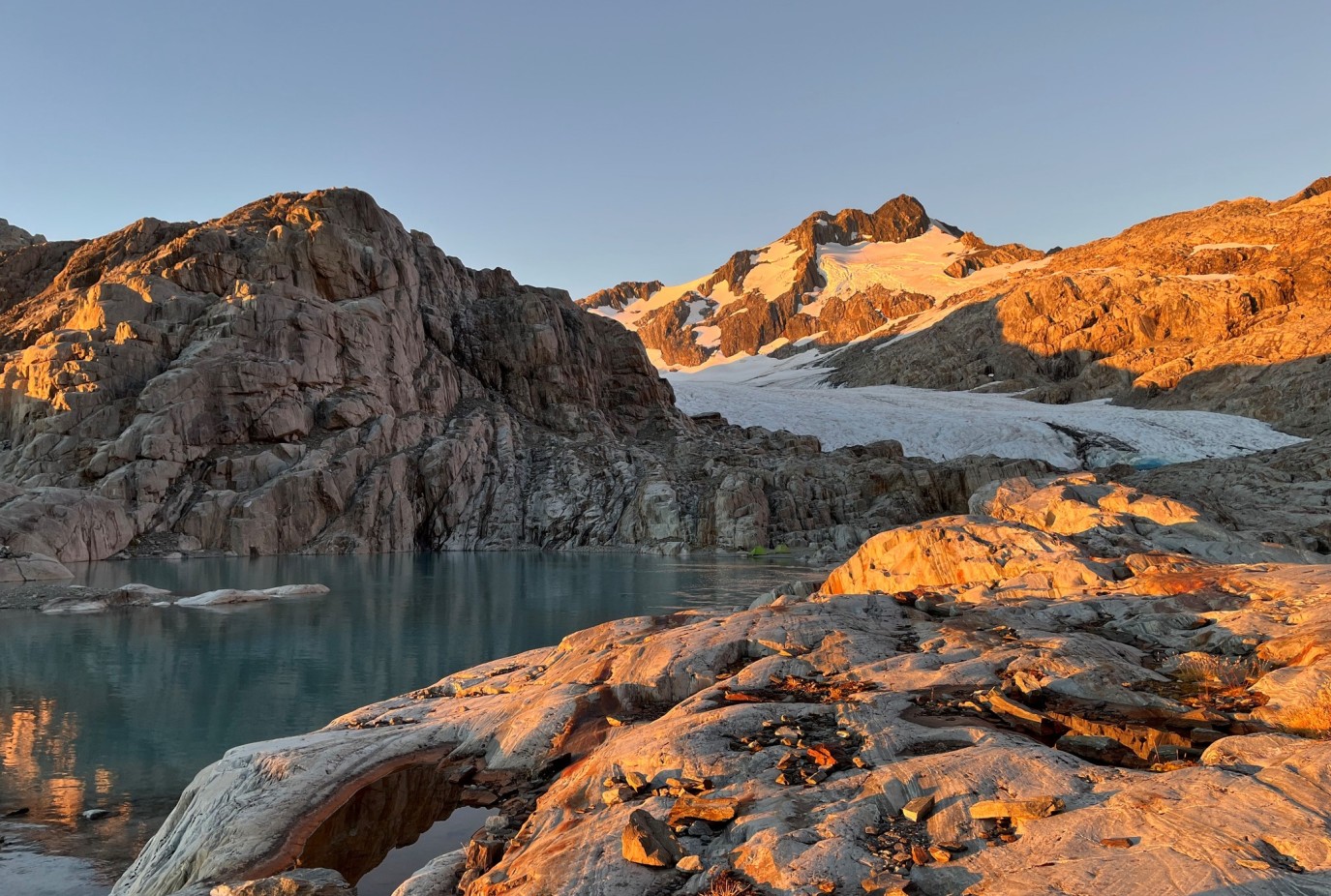
Police and Search and Rescue volunteers are warning of potentially catastrophic outcomes and loss of life after a number of close call rescues on the Brewster Glacier trek near Makarora in the Mt Aspiring National Park, with unprepared visitors lured there by a plethora of sunny day social media posts.
SAR volunteers and Police warn that behind the stunning alpine lakes, glacier, snowy mountain landscapes, and pristine native bush posts is potentially hazardous terrain, especially for those who are venturing beyond the marked Brewster Hut Trail using unmarked territory to reach the glacier.
Multiple rescues have been undertaken, especially in the past year with heightened interest sparked by social media posts from visitors, Police and rescuers say. Pitched as a nice walk with stunning views, the posts fail to point out the advanced, steep terrain and hard to access glacier within Mount Aspiring National Park. The situation has escalated to the extent that rescue volunteers from Mount Cook to Wanaka have themselves taken to social media to highlight the dangers.
In the past six weeks two groups of three visitors have almost lost their lives after getting caught out in the area in bad weather, they say.
An early day walk turned into disaster in late March for a group who had to be winched out in the middle of the night and last week three unprepared and ill-equipped Auckland hikers were very fortunate to escape alive and unscathed. Bad weather closed in trapping them high in rugged steep terrain between the Brewster Hut and glacier with the Otago Southland Rescue Helicopter trying unsuccessfully to rescue them due to thick cloud and snow in the area. “They were about 457m above where we could fly to,” says chief pilot Kevin Gale.
Search and Rescue Otago Lakes coordinator Senior Sergeant John Fookes says fortunately for that group a new cellphone tower had recently been erected on a neighouring peak and they were able to call for help. “They’d become lost between the Brewster Hut and glacier in a bluffy area where it was snowing,” Fookes says. Two of them were status two hypothermic by the time Wanaka Land SAR volunteers, were dropped in just above the bush line by Aspiring Helicopters, reached them. They got them to Brewster Hut where they were warmed up and stayed for the night before being air-lifted out the next morning. “They were in conditions that could have proven fatal if they’d had to stay out there overnight,” Fookes says. “In recent weeks we’ve had three or four rescues up there, with people injured, or disoriented. It’s unprecedented. We’ve had the odd one before, but I think word has really got out on social media,” he says.
Gale says the Rescue Helicopter has responded to at least three rescue callouts to the area in the past month. Fookes says SAR teams have also responded multiple times.
It’s a relatively steep trail from the State Highway to Brewster Hut – an average gradient of 40% over 2kms but after that it’s totally unmarked terrain to the glacier. He says the car park, near Makarora on the road to Haast, may lull people into thinking it’s an easy walk.
SAR teams have also conducted a number of rescues of those who’ve got caught on their return unable to cross the rapidly rising Haast River which has no bridge. “We urge people to check the forecast before they head in there as the weather can be very changeable from South Westland and the river rises rapidly blocking their exit out,” he says. “Over the last few years there have been a lot caught out in the river as it comes up rapidly and leaves them stranded.”
“We just really want people to ensure they have the right experience and gear, research the weather and not overreach themselves,” he says.
With winter approaching Fookes says it’s a timely reminder that what can be benign in summer can be potentially dangerous in autumn and winter.
“Make sure you’re prepared. Those getting caught out are usually inexperienced, and from out of town or overseas,” he says. “We get called to everything from knee and leg injuries to people losing their way in deteriorating weather.”
Raewyen Calhaem, of the Wanaka SAR incident management team, says they’ve noticed quite an increase in callouts there in the last 12 to 18 months. It’s become increasingly popular with it being the only glacier people can reach, she says. “It’s technical, steep, route-finding territory. You’re scrambling on big smooth rocks closer to the glacier. You’re not walking up Roy’s Peak.”
Supervisor of DOC’s Aoraki Mount Cook Search and Rescue team George Loomes says with the onset of winter people need to be prepared. “For that traverse you need good navigation skills through snow and ice, and crampons,” he says. “People have also been going inside the glacier overhangs of ice which is extremely dangerous.”
Mountain Safety Council steps in to set up Brewster advisory group.

Map of Mt Brewster track
The NZ Mountain Safety Council has stepped in to help with prevention and safety solutions amid serious concerns about the increasing number of emergency rescues involving visitors in the popular Brewster Hut and Glacier area.
Council senior partnerships and insights advisor Bevan Smith says they’ve been working with Wanaka SAR, local Police and DOC gathering data and insights as part of a specialist initiative to try and improve safety and education and prevent the increasing number of incidents in the area.
The Council will be recruiting in the next week or so for experts, and likeminded hikers who would go up there, to sit on a special independent advisory group to work through some suitable solutions to the growing problem, he says. “We will be looking for expressions of interest from people in the community.”
Visitors get their information, and make decisions, based on a broad range of sources and factors, therefore it’s essential any interventions are tailored accordingly to ensure they will be successful, he says.
“We’re concerned that this is an emerging trend, and we want to dig more and find out who the people are that are getting into trouble,” Smith says. “A couple of these rescues have been potential catastrophes, and we want to get on top of it.”
Tragically, he says a young woman died in the area in early 2020 after straying off an unmarked route.
“It’s unforgiving terrain so we want to make sure we do something about this emerging problem,” Smith says. Emergency rescues to the area have definitely been busier this last summer, even for the past year, for Police, LandSAR and the Rescue Co-ordination Centre, compared with the last 10 years, he says.
The group will come up with some prevention initiatives with oversight and involvement from Wanaka SAR, Police, DOC and MSC, but independent of them. It’s hoped these will reduce the number of people getting into trouble and needing assistance.
Smith would like to see some measures in place before this summer, depending on how the group goes with finding solutions and how long it will take to implement them.
